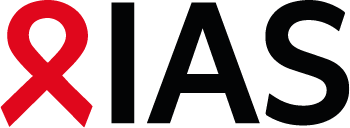Share Abstract
Modelling the impact of cuts in PEPFAR funding for HIV pre-exposure prophylaxis among key populations in sub-Saharan Africa
Abstract Content:
BACKGROUND: In January 2025, the US government issued a directive, pausing all foreign aid programmes. This included a 90-day pausing of all US President's Emergency Plan for AIDS Relief (PEPFAR) funding for HIV pre-exposure prophylaxis (PrEP) except for pregnant women, with a return to funding for key populations (KPs) looking increasingly pessimistic. We estimated the impact of a funding pause for PrEP among KPs in Sub-Saharan Africa (SSA).
METHODS: We developed a HIV transmission model incorporating PrEP, parameterised using systematic reviews of population size estimates, HIV prevalence and incidence. We used PEPFAR reporting on numbers of each KP returning for PrEP in Jul-Sep 2024 as the estimated number using PrEP provided by PEPFAR. For each country and KP, we estimated the proportion of HIV-negative KPs receiving PrEP through PEPFAR and modelled the relative and absolute increase in new HIV infections resulting from removing this PrEP over the next year.
RESULTS: By late 2024, 191,541 KP individuals across 27 SSA countries received PrEP funded through PEPFAR. The estimated proportion of HIV-negative KP individuals receiving PrEP through PEPFAR ranged from 1.3% (95% credibility interval: 1.0-1.8) among people who inject drugs (PWID) to 5.5% (4.5-6.6) among female sex workers (FSW). Stopping PEPFAR's provision of PrEP could lead to 4,577 (3,398-5,757) additional new HIV infections over 1-year; 2,215 (1,367-2,866) among men who have sex with men (MSM), 1,838 (1,198-2,763) among FSW, 350 (186-617) among transgender women (TGW), and 154 (53-232) among PWID. This corresponds to relative increases in new HIV infections of between 0.7% (0.2-1.1) among PWID to 3.1% (1.9-4.0) among MSM, with country-level increases estimated to exceed 5% in 7 countries for MSM, 2 countries for PWID, and 6 countries for TGW and FSW.
CONCLUSIONS: Mitigation measures, including funding through alternative international donors or domestic government budgets, are needed to prevent the detrimental impact of PEPFAR's funding cuts for PrEP, particularly in high coverage countries.
METHODS: We developed a HIV transmission model incorporating PrEP, parameterised using systematic reviews of population size estimates, HIV prevalence and incidence. We used PEPFAR reporting on numbers of each KP returning for PrEP in Jul-Sep 2024 as the estimated number using PrEP provided by PEPFAR. For each country and KP, we estimated the proportion of HIV-negative KPs receiving PrEP through PEPFAR and modelled the relative and absolute increase in new HIV infections resulting from removing this PrEP over the next year.
RESULTS: By late 2024, 191,541 KP individuals across 27 SSA countries received PrEP funded through PEPFAR. The estimated proportion of HIV-negative KP individuals receiving PrEP through PEPFAR ranged from 1.3% (95% credibility interval: 1.0-1.8) among people who inject drugs (PWID) to 5.5% (4.5-6.6) among female sex workers (FSW). Stopping PEPFAR's provision of PrEP could lead to 4,577 (3,398-5,757) additional new HIV infections over 1-year; 2,215 (1,367-2,866) among men who have sex with men (MSM), 1,838 (1,198-2,763) among FSW, 350 (186-617) among transgender women (TGW), and 154 (53-232) among PWID. This corresponds to relative increases in new HIV infections of between 0.7% (0.2-1.1) among PWID to 3.1% (1.9-4.0) among MSM, with country-level increases estimated to exceed 5% in 7 countries for MSM, 2 countries for PWID, and 6 countries for TGW and FSW.
CONCLUSIONS: Mitigation measures, including funding through alternative international donors or domestic government budgets, are needed to prevent the detrimental impact of PEPFAR's funding cuts for PrEP, particularly in high coverage countries.
